Hey guys, it's Scott.
It is Tuesday, June 13th, and before we start a quick bit of housekeeping. We're going to be starting a Book Club over on our paid subscriber Discord, I’m very excited about it. It's gonna be hosted by Noah Abbatemarco, one of the people that runs Our Best Jackett with Ty (greatest assistant). The first story that we're going to be reading is ‘The Boogeyman’ by Stephen King, one of my absolute favorites of all time. It's the first short story that really scared me to death when I read it. That and Pet Sematary, to me, were like, the two scariest pieces of fiction that I read as a child. Just as a side note, not plugging it, but The Boogeyman, now adapted into a really spooky feature film, my 16 year-old saw the other night with his friends and loved it. I'm excited to go see it soon. But it's directed by Rob Savage, who is one of the people who's attached to work on Night of the Ghoul over at 20th Century. We're really excited about it, so go support it!
You have until July 12 to read the story. That's when we're going to be diving in with the book club. I'm going to try and make an appearance with it, too. It's a little close to San Diego so it might be hard. I'm going to be posting my San Diego schedule soon. It's pretty packed. I'll be there for Thursday, Friday, Saturday, and Sunday doing a lot of stuff for all of our creator-owned books. And yeah, I'm excited about it.
Also, a lot of you asked how Emmett did it his baseball game. He got a hit and he walked and he stole and I was very proud of him. He did fantastic. And we have our second game today at 5:30. The game actually got called off halfway through because the smoke from the Canadian wildfires was making everything look like Mars and it started to rain and everybody just couldn't take it anymore. But for a brief moment, it was the strange, otherworldly, and wondrous game where my kid was doing great. So I'm excited about today.
But today, I was going to do sort of a special post. So I know the other bit of housekeeping that Ty wanted me to remind everybody is it's actually the 10th anniversary of Superman: Unchained. I can't believe it's been 10 years since that and Zero Year, which just blows my mind.
But Superman: Unchained is a book I was really proud to be a part of, and it was a real interesting learning experience for me working with a superstar like Jim Lee.
And I'll talk about it more later this week, maybe the following week, but either way, check it out if you can. It's a book that again, I'm really proud of but sometimes gets overshadowed by a lot of the Batman stuff we were doing at the time. But it has a lot of priorities that I believe holds true for Superman.
But on a more personal note, are the questions that I got from the Discord from numerous people this week were all about #ComicsBrokeMe. If you don't know, over the weekend a creator named Ian McGinty passed away. I didn't know Ian at all, so I'm not gonna speak on his death except to say that love and condolences go out to his family and friends. I do have very close friends who were very close with him and nobody has a bad thing to say about him. Everyone feels his loss tremendously in the community, it seems like. But his death also sparked a discussion about the hardships of working in comics under this hashtag #ComicsBrokeMe, which is absolutely worth checking out. I tweeted it if you want to go check out the thread or the hashtag. At this point there's hundreds of posts about what it's like to work in comics and some of the challenges, some of the predatory behavior, some of the real letdown, some of the abuses, all of it. It really highlights a lot of things that need to change in our industry, the theme is largely about the ways companies can be unfair, abusive, really milk creators talents to the bone, and not pay a fair wage.
I think a lot of us who've been in the industry a long time have shared stories, before social media was really a place to do it, with each other. And to see it highlighted here and to see it brought into the public forum, I think, is a really good thing. And I was happy to see the conversations happening this way and to say to everybody too, my DMs are always open, I'm always here for advice. But I have been really fortunate. I certainly have my stories, and I've shared a lot of them in the class, I've shared a lot of them in interviews, some I haven't shared. But it's a rough industry, it really is. I mean, again, I was very privileged and very lucky, but I both experienced and have seen things that I can speak to in terms of the ways in which it can really grind people up and spit them out for all the wrong reasons.
So what I thought I'd do today was give a couple of thoughts on how to protect yourself if you want to be a creator. These are some of the things that you can do, just a few of the many, many things, I'm sure I'll forget or leave out or important things that I'm not prioritizing high enough. So this is just the beginning of a conversation. If I say anything that people disagree with, I'm here for it, you can tell me in the comments. I'll look and respond if there are things that I left out, which I obviously will because it's a short post. Please please put them in there and I'll respond to those too. But I can only speak to their priorities that I've seen work for my friends and for myself in some ways, some of the moves and some of the strategies that have protected us a little bit from some of the worst aspects of the comic industry. And so I'm going to run down or move through those in a way that starts at the top, starts with a couple real compass anchors.
So first, if you're doing comics, I mean, as a creator, you've got to know what you want to do, like, who you are as a writer. I know it sounds vague but it's not, it means do you want to be an indie creator who keeps all the rights to their properties for film/ TV because what you want is control over your material from top to bottom? Are you somebody who wants to work in superheroes but really wants to make things that are personal and important within those, that you have B-list characters, you don't want to be in front of the giant spotlight of the Batmans and Wonder Womans and the Spider-Mans? You don't have to have it down crystallized exactly like, “this is exactly who I want to be.” But you have to have a sense of what matters to you writing-wise, what things do you want to say? What do you want to work on? Who are you?
For me coming in, for example, I knew I wanted to do indie stuff and I had an inkling that I wanted to dabble in superheroes and dark places and that was it. But it was extremely important to me to have creative freedom. And that's the thing that I'd say to you is that you absolutely have to prioritize yourself who you are creatively, your creative integrity. Everybody's is different. Again, some people really want to do small, indie stuff, some people really want to have big, ambitious, over-the-top superhero epics, that's fine. There's no judging of what kind of project you want to work on. The only thing I'm telling you is that once you know that, you have to protect those priorities. You have to say, “this is what I'm going for and I'm not going to compromise those things.”
So once you know that, let's say if you're me, when you say “I really want to be able to have some creative freedom on my indie stuff, I might want to do superheroes,” then the next step, and I know people might not agree with this is to have a secondary income, honestly, of some kind. I never expected to make money doing comics. I told my wife when we got married, “I will never make any money. But I love what I do and I'm going to try my best to put out the best work possible.” So it doesn't mean that you won't make a living in it and that you shouldn't expect to at some point, but when you get into it in those first formative years, when you absolutely have to be who you want to be creatively, I would say do whatever you can to support yourself in a separate field. For me, I taught high school, I taught college all the way through four years into Batman easily. And I did other work too. I tutored, I did other things on the side, I was always trying to have some kind of sustainable income outside of comics, not because eventually you can't make a living in it, you can. But if you count on it, it makes you susceptible in those very, very early years, to the kinds of pressures from companies and the kinds of financial pressures and all of it that I think can make life extremely hard and make protecting your own mental health and your own creative integrity very, very hard.
So that's sort of it, figure out who you are, get a secondary income of some kind to support yourself So you have a little bit of breathing room, you can make some choices that reflect those priorities creatively without feeling absolute pressure. Three, once you start to get jobs, once you start to make the things you want, get a lawyer to look over contracts, 100%. Do not go into anything without somebody that you trust. Pay the fee, pay the 5-10% perpetuity, pay the whatever hourly rate. If you do not have a lawyer or don't know a lawyer, ask other people in the industry, people are happy to share them. I'm happy to share them, my DMs are always open for these kinds of questions. I try to be really open about everything from page rates to this sort of thing to contracts, but absolutely have somebody look over your contract to protect you. There's all kinds of fine print that you will not understand that to this day I do not understand, I count on my agent for film and TV and my lawyer for publishing in for print and I would have no idea what some of the dangers were in those contracts if I didn't have them walk me through it to a tee.
So secondary income, have a lawyer that protects you when you start working. Also, ask around. Find other people at your stage of work and ask them what they're making. Ask them which companies have treated them fairly. Me and my friends did that all through the 2010s when we were coming up—Jeff Lemire and Nick Spencer, all those people that I was coming up with that were new at that time, we talked all the time, “Well this editor was great to work with, this company didn't pay me, this is somebody who let you keep the rights,” all of that. And share that information, share that with each other. We share it. And if you want to approach seasoned pros, approach them. A lot of us, like me, we're happy to tell you what our experiences have been. We might be removed from the stage that you're at, so it might not be quite as relevant to you. But I'm telling you, again, thirdly, find people to share information with.
Fourth, protect your mental health. Could be number one, but for me, I've been through periods in comics that have really wrecked me, sometimes because of things that happened at a company that were surprising or unfair, and sometimes just because the pressure of it, putting yourself out there, making yourself vulnerable, writing something that's personal to you and then exposing it to thousands of people, can be overwhelming. And that's it. You don't have to have a reason. It can be because comics breaks you in some way because it's unfair or it can also just be that it's a creative process where you're staring into the mirror all day looking for things to talk about that matter to you to write about—your fears, your hopes, the things that challenge you. And that's a really emotionally taxing thing, especially to do all alone, and it is a lonely job writing and drawing. Comics is much less lonely than other forms of it like straight prose fiction or that kind of thing, some of the fine arts, conceptual art, things like that. But still, it's lonely. You're all alone, making something that matters deeply to you and then showing it to everybody exposing your feelings, exposing your vulnerabilities.
So protect your mental health, whatever that means for you. I have a therapist, I do regular exercise, I make sure to take breaks and go with my family. But the first couple years in comics, I got extremely depressed, extremely anxious. I had panic attacks all the time, I didn't treat myself well, I drank too much at cons to mute the stress. I was not a healthy person. It hurt it hurt my marriage, it hurt my relationship with my kids, and it was the time that I look back on and I wish I had made better choices about how I could have been more kind to myself, honestly, and by proxy kind to people around me, my family, and my friends. So ultimately, yes, protect yourself.
I hope those things help. 1) decide what you want who you are creatively and protect those priorities at all costs and respect them. If you're not someone who cares about film and TV rights, you don't care if those go away, that's fine. Then approach companies that you want to work at that will support you and give you a good page rate. Respect to where you are at your career at that moment, meaning, “what I really need right now is a page rate and a place where I can be creatively expressive,” Okay, then find companies that do that. “Actually, I really don't care about a page rate, but I care about having control of my work.” Okay, find companies that do that. 2) absolutely get a lawyer to look over your contracts. 3) share information with other people. Find other creators on your level, above you, if you want, that’re willing to tell you what their rates are, all that kind of stuff, or and what companies are trustworthy, what are not, all of it. It's crucial. 4) Protect your mental health at all costs. Do what's right for you to make sure that you're happy and healthy. Nothing is worth falling into a pit of despair over, not Batman, not any of it. I mean, I was at the height of my rise those years. I was like, recognized on the street-type height and I was miserable. And I don't mean it as a ‘woe is me,’ I mean it was I wasn't taking care of myself and therefore I didn't get to enjoy that period and instead was really just a mess. So please know that we go through it. You're not alone. And I really hope some of this helps.
S

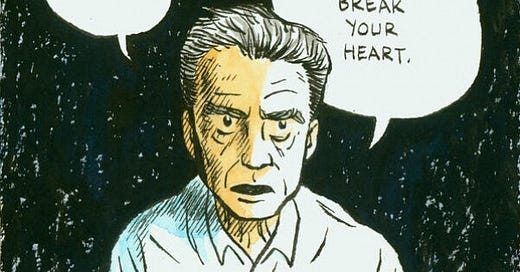
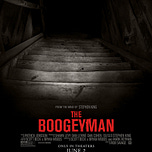


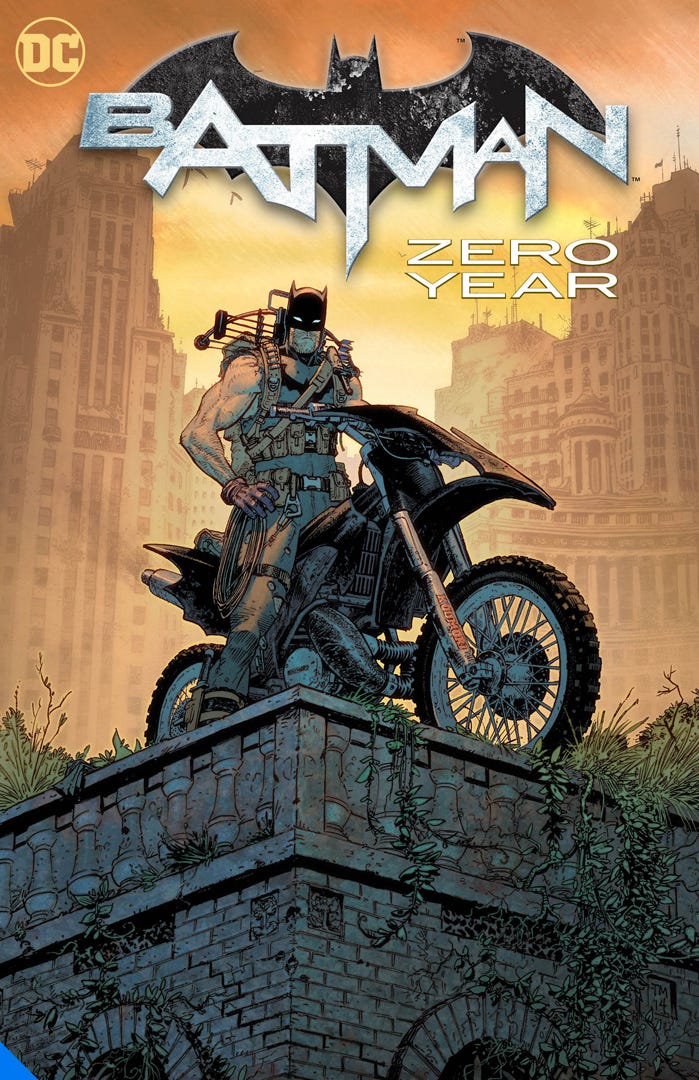
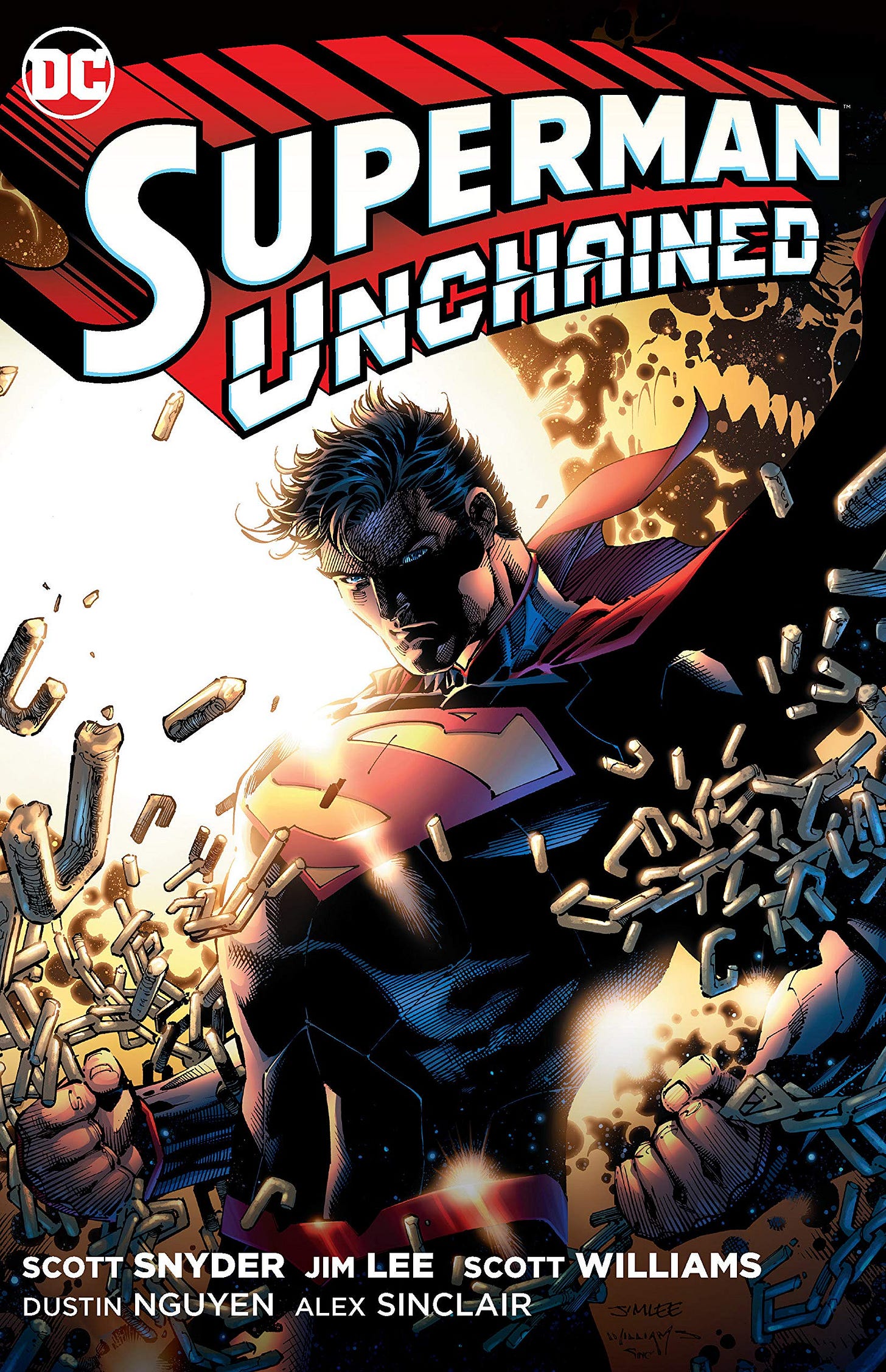
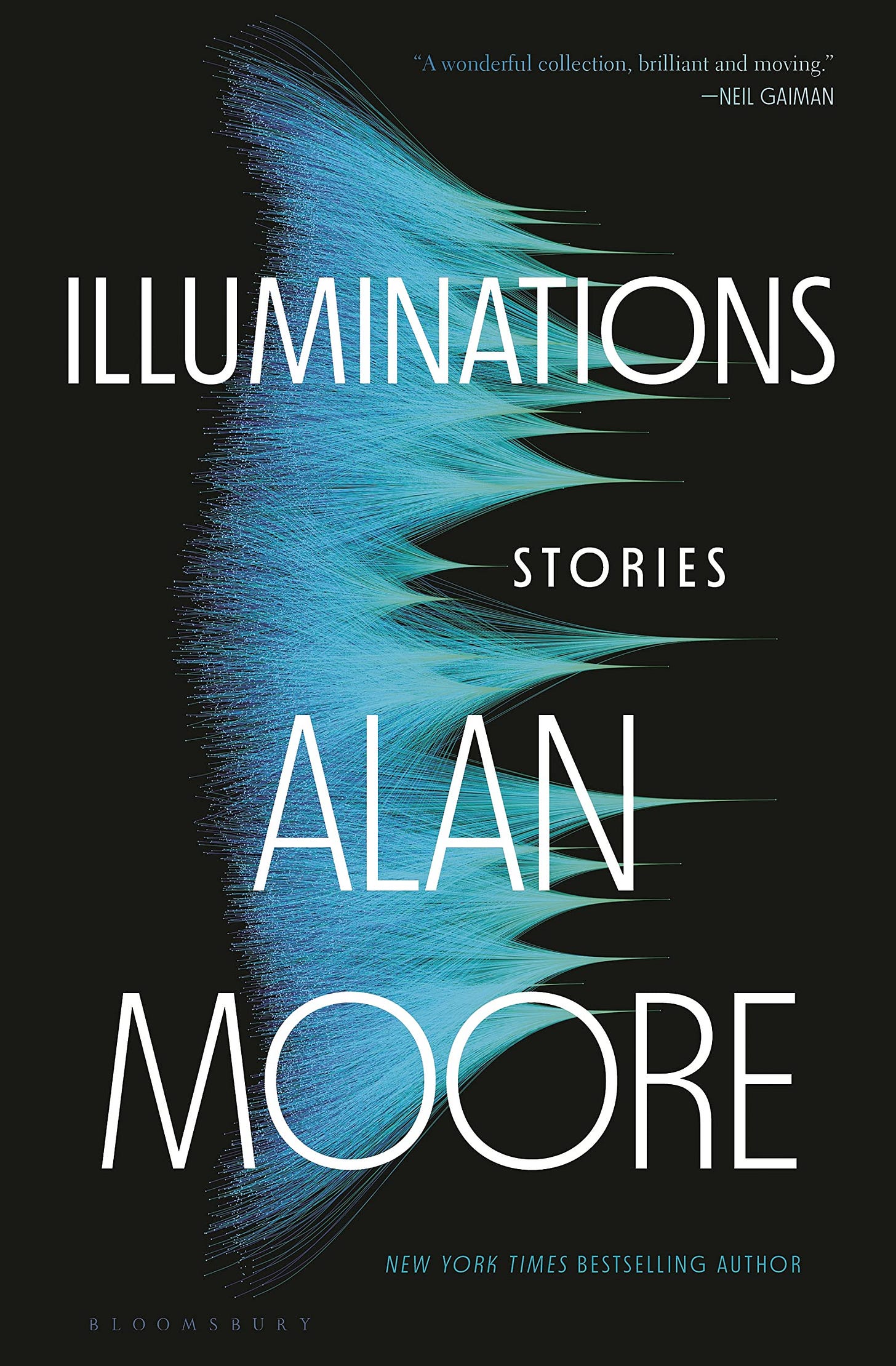

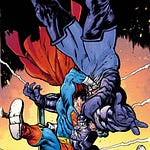
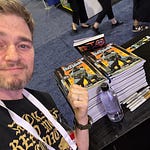
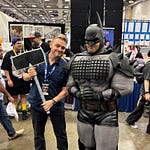


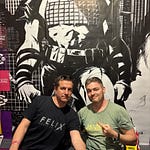
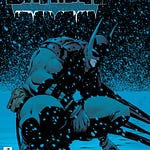
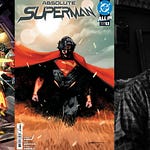
Share this post